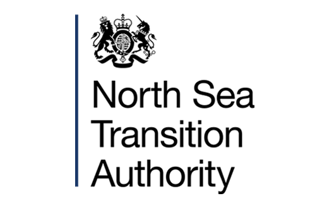
As we focus on maximising the potential of the North Sea – helping to ensure security of supply and supporting the drive to net zero – through combining digital and data expertise, the Offshore Energy Digital Strategy Group (DSG) is looking for members of its Task Groups.
The Offshore Energy Data Strategy Taskforce published the Digitalising Offshore Energy Systems strategy in 2022 which made seven recommendations for digitally uniting the offshore energy sector.
The first of these was to create an Offshore Energy Digital Strategy Group. This was founded in late 2022, chaired by the North Sea Transition Authority (NSTA) with membership from BEIS, Crown Estate Scotland, Marine Management Organisation, the Marine Scotland Directorate of the Scottish Government, North Sea Transition Authority (NSTA), Ofgem and The Crown Estate.
The DSG is supported by contributors from Energy Systems Catapult, NZTC, OEUK, Open Data Institute, Offshore Renewable Energy Catapult, Offshore Wind Innovation Hub, RenewableUK and Technology Leadership Board.
Now, the DSG is looking for individuals and organisations to help shape the future by joining one the following Task Groups:
Data Principles Task Group
This group will drive the adoption of a data management framework(s) across the sector including considering best practice guidance.
The group will be chaired by Ed Evans, Open Data Institute, who said:
“Establishing effective principles and a framework for best practice is a powerful way to communicate our goals and describe the ambition of the programme. The Data Principles Task Group will define or adopt the best practice in digital and data needed to address the sector's challenges.”
Common Data Toolkit Task Group
This group will consider establishing a common data toolkit to facilitate controlled and automated data sharing across the sector. The group will look at the best approaches for a data catalogue and driving data interoperability, with the aim of enabling whole system planning through better asset visibility and creating a data portal roadmap.
In delivering this, the group will be considering use cases on how the offshore energy sector can leverage existing operational, asset, decommissioning and emissions data to drive innovation, cost reduction and net zero.
The group will be co-chaired by Steve Roberts, NZTC and John Seabourn, NSTA
Steve Roberts, NZTC Interim Head of Offshore Energy, said:
“The energy sector has over 50 years of data, but its use has been hindered by quality and multi-format issues, missing or unreliable data, and with valuable information difficult to derive from often restricted sources. Part of the solution is to examine the tools we all use and see if there are common approaches and toolkits that can help expose the valuable information locked away.”
Driving Cross-Sector Digitalisation Task Group
This group is tasked with co-ordinating digitalisation efforts to enable efficient investment and capture cross-sector requirements. To date, the group has initiated a cross-sector digital maturity survey and will focus on understanding these digitalisation requirements going forward, prioritising cyber security best practice, enhancing digital and data skills across the sector and considering options for developing a digital spine to optimise the whole offshore energy sector.
This group will be chaired by Dan Brown, Head of Data & Digital OEUK, who said:
“The UK offshore energy industry must continue to digitalise to remain competitive while it delivers the low carbon energy system of the future. This joined up, cross-sector approach will support the digital transition in our workforce and develop the cyber-secure, cross-industry digital foundation we need for the decades to come.”
Nic Granger, NSTA Director of Corporate and Chair Offshore Energy Digital Strategy Group, said:
“The offshore energy sector has a critical role to play in achieving the energy transition and cutting emissions while ensuring security of supply; and that can only be achieved through collaboration and the effective use of data.
Working together, these Task groups will deliver the recommendations of the Digitalising Offshore Energy Systems strategy, and we welcome insight and contribution of individuals from industry, academia and government.”
The Task Groups are anticipated to meet monthly, but frequency will be determined by individual Chairs. Time commitment is estimated at approximately half a day a month. These are voluntary roles.
All members may be asked to sign declarations concerning conflicts of interest and non-competition, in a form to be approved by the NSTA. Terms of Reference for all groups are available on request.
If you would like to know more, please send expressions of interest to dsg@nstauthority.co.uk by 7 February 2023


